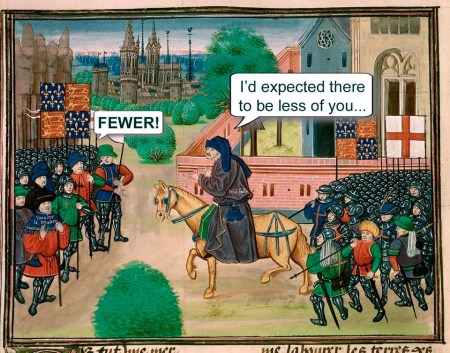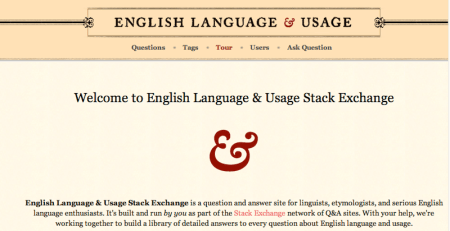Recently from mild-mannered editor John McIntyre (as he describes himself on the net), this captioned page (which he got from Chris Green on Facebook), entitled “Pedants’ Revolt” — a play on “Peasants’ Revolt” — from an illuminated manuscript, captioned with usage advice:
There is a considerable literature, in the handbooks, on Language Log, and this blog, on the choice between less and fewer. The usual story is that less is to be used for mass nouns (less shrubbery) and fewer for count nouns (fewer shrubs) — for the opposite concept, more is used in both situations — but there is variation, even for educated and careful writers, and some circumstances where less is clearly impinging on fewer; I myself see no point in objecting to the grocery store usage ten items or less. The case above is not so clear.
(I don’t know the source of the manuscript page, or the identity of the captioner.)









